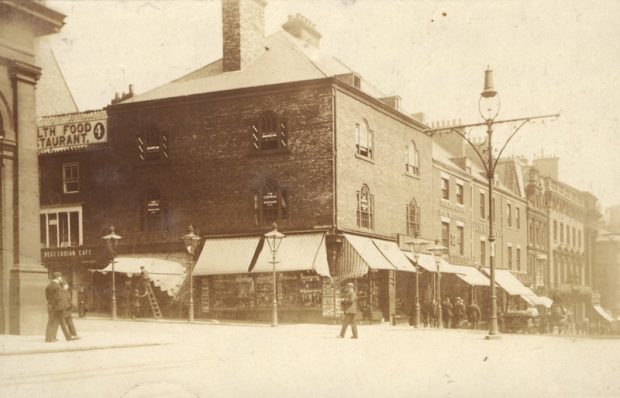Today’s guest blog comes from David Irwin, a previous Queen’s Award for Enterprise Promotion (QAEP) winner and now a member of the assessment committee for this Award.

Did you know that Mosley Street in Newcastle was the first street in the world to have electric lighting?
I was born, and still live, in the north east of England, not an area that you might naturally associate with innovation and entrepreneurship. However, in the 19th century, it was and a hot bed of enterprise – with people like George Stephenson (building the Rocket), William Armstrong (inventing hydraulic cranes, building armaments and warships and creating the world’s first hydro-electric power plant), Joseph Swan (inventing the incandescent light bulb) and Robert Hawthorn (building, in Newcastle, the first railway locomotive to run in the United States). But during the 20th century, the north east lost that spirit of entrepreneurship and innovation and, for too long, survived on the big industries of coal, steel and shipbuilding. As those industries declined, it became essential once again to encourage people to start their own businesses.
So, in 1980, I co-founded Project North East, one of the first enterprise agencies in the UK, growing it to a turnover of around £3.5 million and employing some 95 staff. I was then appointed as founder CEO of the Small Business Service in 2000, taking responsibility for the UK government’s support for small business and a role as ‘strong voice for small business at the heart of government’. Having spent over 30 years encouraging and supporting thousands of entrepreneurs to start and grow their own businesses one of the main lessons is that a culture of enterprise needs to be nurtured and supported. While spark and drive cannot be taught, they can be facilitated, and many of the critical skills needed to grow a business successfully can be taught.
This is more important today than ever before as we face challenges even greater than in the 1980s. Entrepreneurship needs to be stimulated and encouraged, from the early days of school onwards. And that is why we continue to need people who are willing and able to support our latent entrepreneurs.
I was delighted when the QAEP was launched in 2004. The QAEP fulfils a vital role in recognising the often unsung contributions of those people who do the essential work of promoting and supporting entrepreneurship. And I was very honoured to receive it myself in 2010. I am now a member of its advisory panel looking for exceptional people each year to receive the award.
We look for evidence that nominees have made a real difference over a period – but they also look for evidence that nominees have ‘gone the extra mile’. If someone is simply doing the day job then it is unlikely that they will win an award. Rather the panel is keen to identify winners whose efforts to promote and support entrepreneurship are entirely voluntary or, if they work in the field, have contributed significantly more than might have been expected of them by their employers: people like Allan Gibb who did so much to ensure that small business became a respectable topic for academic research and Rob Batty who spent a lifetime promoting entrepreneurship in County Durham. Perhaps we will look back in a further 150 years and realise that these winners of the QAEP have had as great an impact on the development of society and the 19th century entrepreneurs did on theirs.
Subscribe to updates from this blog, or follow us on Twitter and LinkedIn.

Leave a comment